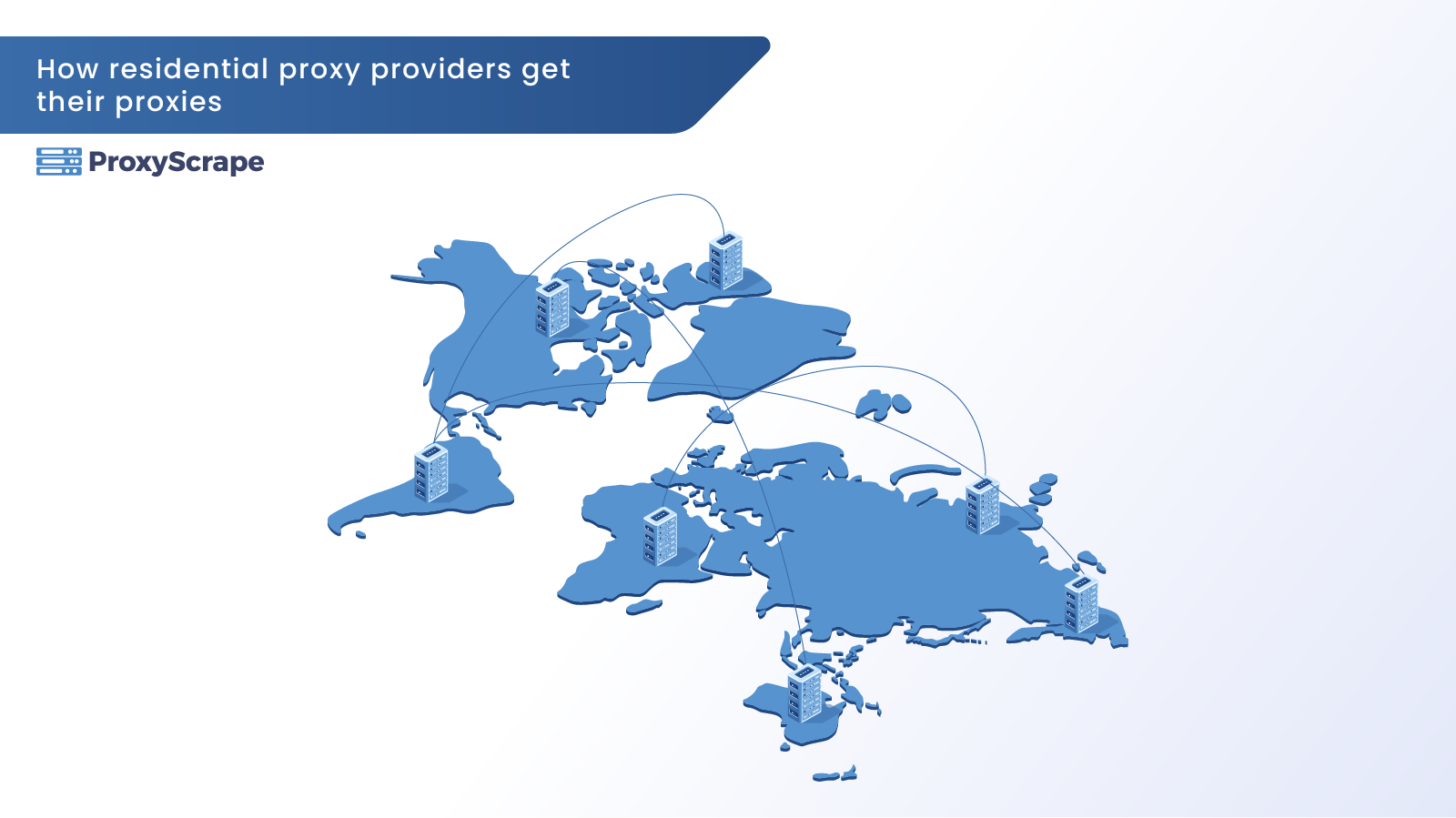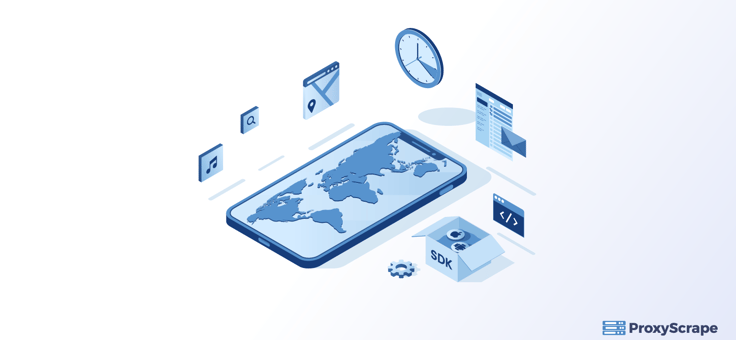How Residential Proxy Providers Get Their Proxies

When it comes to the legitimacy of proxies, Residential proxies are the most sought proxies. Their legitimacy provides many advantages, such as least likely to get blocked by target websites when implementing web scraping activities and assessing geo-restricted websites. It would be worthwhile to investigate where the proxy providers acquire their IP addresses in order
When it comes to the legitimacy of proxies, Residential proxies are the most sought proxies. Their legitimacy provides many advantages, such as least likely to get blocked by target websites when implementing web scraping activities and assessing geo-restricted websites.
It would be worthwhile to investigate where the proxy providers acquire their IP addresses in order to educate end-users like you on the whole process.
How a Residential Proxy Server Works
But first, let’s get a brief understanding of how residential proxy servers work. When you access the internet via a residential proxy, you will first connect to your proxy provider’s server. Then this provider chooses a residential IP at random or based on some guidelines. Then all your requests will be routed through this residential IP address.
Now let’s look at the criteria on how your proxy provider chooses the residential owners and assign them with IP addresses to route your requests through them.
General practices of proxy providers in IP acquisition
First of all, when it comes to Residential proxies, you must keep in mind that you are using someone else’s computer network to fulfill your online browsing needs. In doing so, you will be using their bandwidth and hardware resources. The residential owners will allow the customers of the proxy service providers to browse the internet only after becoming part of the residential proxy network. They would need to first install the apps on their devices provided by proxy service providers.
So as you can see, there are three major parties involved in the IP acquisition process:
Residential owner– The owner who owns the devices through which your (the customers) traffic will be transferred.
Customers -Who pays for the use of residential IPs through which they browse the internet using residential owner’s bandwidth as well as their devices.
Proxy service providers-who initiates the proxy service that enables you to connect with residential owners for your browsing needs.
As far as the IP acquisition process is concerned, there must be a fair model at the very least to satisfy all these parties. Such a model should be transparent among parties where they need to document any formal agreements and ensure that the processes are implemented with appropriate consent. The acquisition process must also ensure that the residential proxy owners are rewarded and appreciated for their services.
The proxy industry, being relatively young, does not possess any standard mechanisms on the IP acquisition process. In the following section, we will look at some ethical ways certain proxy providers acquire their Residential IPs.
Major ways to acquire Residential IPs

So as you have discovered in the last section, transparency and treating every party equally are critical to a successful residential proxy acquisition from third parties.
Following are the significant ways in which the proxy providers acquire residential proxies:
Inserting SDK into software that people use-Some of the major proxy providers tend to approach developers and third-party vendors and request them to insert the provider’s code into vendors’ or developers’ apps. They don’t have to pay or monitor the number of people who assess their devices. In order to follow best ethical practices, most providers will ask for their consent and control the number of devices used.
Buy traffic from people directly– In this scenario, a proxy provider would install their apps to the devices of normal users and then sell their unused bandwidth. Some proxy providers may choose to reward the residential proxy owners financially due to taking part in the residential proxy network.
The below two procedures that the proxy provider uses to acquire residential proxies are unethical, and we do not encourage them. The reason for including them is just for your information. Be wary of such acts.
An App/platform having hidden functions, misleading forms that turn the user into an exit node– Similar to the last two methods, a residential owner is given the app by a proxy provider to install. But this time, providers will unethically hide some functions and include misleading forms that turn the user into an exit node; a device that transfers a client of a proxy provers traffic by hiding their identity. So, in other words, the residential proxy owner does not know that their device has been acquired for acting as a residential proxy.
Injecting Malware into Residential owner’s devices- In this situation, the residential proxy owner’s devices are injected with malware. Therefore the end-users are not aware of their participation in the residential network.
In addition to all the above, there is also the IP leasing process.
Lease IP spaces from ISPs-There can be circumstances where Proxy providers may request an ISP to register a data center IP address with its name. This is usually how the residential proxies are being made. Then customers would be able to access the data through this data center which acts as a static residential proxy.
Conclusion
Now you have discovered how residential proxies are acquired. In order to get a fair deal to all the parties involved, we would like to recommend you to get your residential proxies from providers who practice ethical means and ways of acquiring them. It would also be ideal for the proxy providers to have a transparent communication process between them and the residential proxy owner.